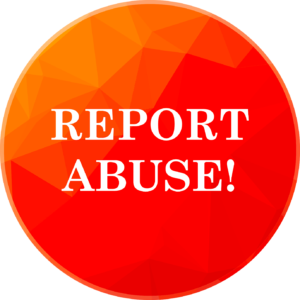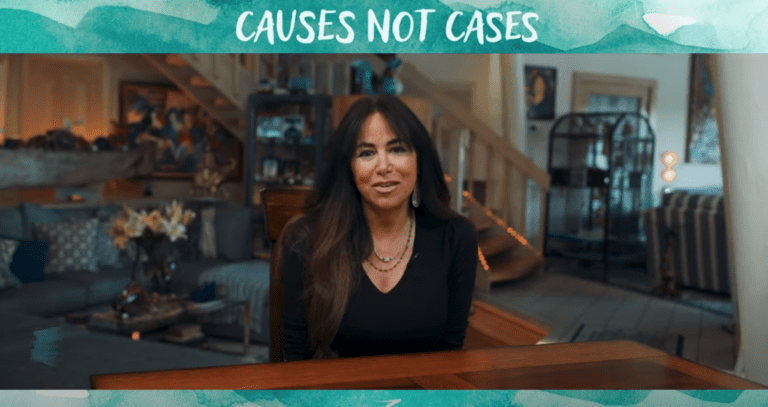Most people believe they would try to do the right thing if confronted with evidence of a vulnerable person being victimized. But when it comes to reporting suspected sexual abuse of a child, elderly person, or another vulnerable member of the population, even the best of intentions collide with the difficulty of not knowing where to turn and whom to trust.
Here we broach the difficult and painful subject of spotting and reporting sexual abuse in California. We review the general warning signs, some of the laws affecting reporting, and practical considerations in how to raise the issue in a manner that protects the safety and legal interests of the person you suspect is being abused. If you have further questions about reporting sexual abuse, contact an experienced California sexual abuse injury attorney today.
[lwptoc]
Sexual Abuse Warning Signs
The first step is to understand what sexual abuse is. Then it is not always easy to spot warning signs of sexual abuse. The age, gender, and life circumstances of the victim can all play a role in shaping a survivor’s physical and emotional response to sexual abuse. Below we review the signs for five populations that may be particularly vulnerable to sexual abuse, as according to RAINN, the Rape, Abuse & Incest National Network: young children, teens, college-age adults, elderly adults, and people with disabilities. Of course, these are not the only categories of people at risk. Any person, at any age, can fall victim to sexual abuse.
Young Children
According to RAINN, the Rape, Abuse & Incest National Network, perpetrators of sexual abuse against children often take steps to hide their actions, making abuse potentially difficult to spot. The majority of young children cases of sexual abuse involve someone they know like: a family member, relative, or adult caregiver (e.g. clergy/babysitter/scout leader). Warning signs displayed by a child may include:
- Physical signs, such as a child having a sexually transmitted disease, or evidence of genital trauma (e.g., bruising, bloody sheets);
- Behavioral signs, including age-inappropriate sexual behavior, age-inappropriate bedwetting or soiling of sheets, avoiding being alone with certain people, and avoiding removing clothing to change clothes or bathe.
- Emotional signs, such as sexually explicit talk, regression to earlier-childhood behaviors, nightmares, and excessive anxiety.
There may also be warning signs detectable from the relationship of the abuser to the child. An adult who pursues age-inappropriate “friendships” with children, ignores physical and socially expected boundaries with children, or engages in behaviors typical of “grooming” (such as giving children gifts or showing them pornography) can all signal potential abuse.
Teens and College Age Adults
Communicating with teens and college-age adults as they become independent from their parents or guardians can be difficult, and sometimes complicates spotting signs of sexual abuse. Sexual abuse at these ages can involve abuse by adults, but may also involve abuse within a social or dating relationship with a peer. Behaviors or signals that may reflect having been abused, according to RAINN, include:
- Marked fluctuations in weight and eating habits;
- Physical signs of abuse (bruising/STIs);
- Depression, anxiety, and suicidal ideation;
- Marked changes in school performance;
- Declining personal hygiene;
- Substance abuse; and
- Withdrawal from friend groups and social isolation.
Also look for signs of abuse in teens’ or college-age adults’ relationships, including expressions of discomfort about pressure to become sexual active, indicators of physical (bruising/STIs) and psychological (fear/anxiety) aggression, and efforts by the potential abuser to isolate the potential victim from friends and family.
Elderly Adults
Sexual abuse of the elderly can occur in their homes or at residential care facilities. Abusers typically include caregivers or other residents of those facilities. This form of abuse often goes underreported either because the elderly person is incapacitated, is dependent on the abuser for care, or feels shame. Signs of sexual abuse, according to RAINN, include:
- The elderly person reports the abuse or a sexual relationship to which the person cannot consent;
- Physical signs of abuse (bruising/STIs/blood-stained bedding);
- Fear, anxiety, or a desire not to be left alone with a particular caregiver or nursing facility resident.
Signs that may appear in the elderly person’s relationship to a potential abuser may include the abuser’s attempts to isolate the elderly person from family and friends, and an elderly person giving control of their financial affairs to someone they just met.
Adults With Disabilities
The signs of sexual abuse of an adult with disabilities resemble those of sexual abuse of an elderly person. A disabled adult may be particularly incapable of giving consent to sexual contact. In addition, the forms of coercion and control an abuser may exert over a person with disabilities can include cutting off that person’s access to services necessary to care for themselves or to communicate.
Obligations and Options for Reporting Sexual Abuse
 If you suspect sexual abuse, then you should report it. That sounds simple enough. But the devil is in the details. Below, we discuss a person’s obligations and options for reporting sexual abuse in California.
If you suspect sexual abuse, then you should report it. That sounds simple enough. But the devil is in the details. Below, we discuss a person’s obligations and options for reporting sexual abuse in California.
Do You Have a Legal Obligation to Report Sexual Abuse?
Under California law, certain people in positions of authority or caregiving are deemed “mandated reporters” of sexual (and other forms of) abuse. These people have a legal obligation to report suspected abuse, and face penalties for failing to do so.
- For child sexual abuse: Under the California Child Abuse & Neglect Reporting Act, a vast array of persons in roles of authority over, caregiving for, and access to information about children have a legal obligation to report known or reasonably suspected sexual abuse of a minor. The list of mandated reporters is too long to include here so we encourage you to click the link and read it at section 11165.7 of the law, but generally it includes virtually all teachers and school employees, child care providers, medical and mental health professionals, coaches, camp counselors, law enforcement officers and first responders, clergy, photo/video processors, and computer technicians.
- For elder sexual abuse: The California Elder Abuse and Dependent Adult Civil Protection Act creates an obligation to report sexual abuse of an elderly person that is known by, or reported to, “any person who has assumed full or intermittent responsibility for the care or custody of an elder or dependent adult, whether or not he or she receives compensation, including administrators, supervisors, and any licensed staff of a public or private facility that provides care or services for elder or dependent adults, or any elder or dependent adult care custodian, nursing home care taker, health practitioner, clergy member, or employee of a county adult protective services agency or a local law enforcement agency.”
- For sexual assault generally: Health care practitioners have an obligation under California law to report any case of physical injury resulting from sexual assault (or any other form of violent crime).
Of course, just because you do not have a legal obligation under one of the provisions above does not mean you do not have a moral obligation to report a case of sexual abuse or assault. But, your status as a “mandatory reporter” may determine to whom and how you report that knowledge or reasonable suspicion.
Whom You Must Report to as a Mandatory Reporter
As a mandatory reporter, you must report suspected abuse as follows:
- Child sexual abuse: to a police department or sheriff’s department (not including a school district police or security department), a county probation department (if designated by the county to receive mandated reports), or the county welfare department.
- Elder sexual abuse: to a local law enforcement agency and also (in the case of sexual abuse at a state hospital or care facility) to investigators of the State Department of State Hospitals or the State Department of Developmental Services.
- Sexual assault generally: to a local law enforcement agency.
Mandatory reports must generally be made immediately. It’s not a bad idea to call a lawyer who focuses on sexual abuse cases early in the process to protect your rights and make sure the reporting agency doesn’t just bury your report and make it harder for a survivor to recover compensation.
Whom You May Report to as a Non-Mandatory Reporter
If you are not a “mandatory reporter” under California law, then you have a wider variety of options available to you in terms of to whom you can raise the alarm about known or suspected sexual abuse. Depending upon the circumstances, you might report the abuse to law enforcement, a welfare agency, a mandatory reporter, the management or leadership of a commercial or educational institution, or a national or regional hotline, to name a few.
How You Report Matters, so if Possible, Talk to a Lawyer First
There are circumstances in which a suspected case of abuse must be addressed without a moment to spare. Most people recognize these circumstances and act appropriately, typically by calling 911. And if that is what it takes to keep a vulnerable person safe from sexual abuse, then by all means, that is what you should do.
In all other cases, however, we encourage anyone intending to report suspected sexual abuse to pause for a moment to reflect on how that report gets made. Even as a mandatory reporter, how you go about reporting can have a significant and often-unintended impact on the legal rights of the person suffering from the suspected abuse.
That is because the moment the abuser and any entity or institution potentially responsible for the abuser’s conduct gets wind of the report, they will circle the wagons to protect themselves from the potential criminal consequences of the abuse, and also from potential civil liability to the abused person for damages.
And whereas reporting to law enforcement will likely initiate an immediate criminal investigation, it may also risk depriving the person being abused (and his or her attorney) of an important opportunity to obtain evidence to prove the nature and extent of the abuse before that evidence becomes inaccessible.
That is why we encourage anyone planning to report abuse in any situation other than one requiring immediate law enforcement attention, whether as a mandated reporter or simply as a concerned human being, to speak with an experienced sexual abuse injury attorney first.
Even if you have just hours to report abuse under the law, speaking with an attorney can help to avoid mistakes that could impair the abused person’s rights. A skilled attorney can manage the process of mandatory reporting, and can help you work through your options if you are a non-mandatory reporter, in a way that ensures the abused person’s safety and legal rights to seek compensation remain protected.

In advising you to reach out to an experienced California sexual abuse injury attorney, we are not suggesting you shirk your responsibilities—be they legal, moral, or both—to report known or suspected sexual abuse. If a report is appropriate, then it will get made.
Instead, we encourage you to speak with an attorney because of the realities of how institutional and criminal investigations of sexual abuse work. More often than not, the purpose of these investigations is bringing abusers to justice via criminal prosecution, which is of course important.
But in addition to criminal justice being done, survivors of sexual abuse often need financial support to pay for the treatment and medication they need to recover from the trauma of sexual abuse. Obtaining that financial support usually requires taking civil legal action in California courts, which is a separate process from criminal law.
And while it is certainly possible, and often happens, that civil and criminal matter proceed on parallel tracks, it takes careful coordination and management by a skilled attorney to make sure the criminal process does not unduly delay or hinder obtaining compensation for the survivor of sexual abuse.
If you know of or suspect a case of sexual abuse in California, take the steps necessary to protect the abused person. If immediate action is needed, call the authorities right away, then we encourage you to speak with a California sexual abuse attorney to help manage the reporting process.







